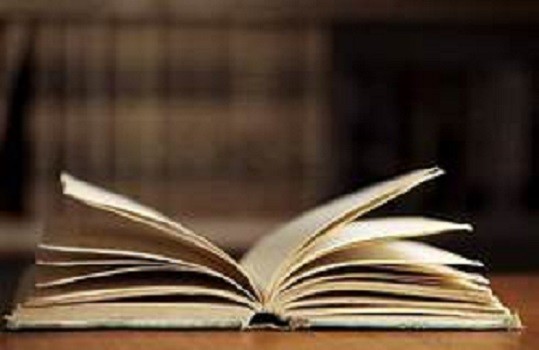Master of Science in Nutrition

Explore Graduate Studies in nutritional sciences
The M.S. program in nutritional science is recognized nationally and internationally for its multidisciplinary approach and the breadth of its faculty. Your course of study, depending on your interests, might cover anything from maternal and child nutrition, to obesity, chronic disease or nutritional genomics.
Contact us at dnsgrad@cornell.edu
You may specialize in any of the following tracks, which will prepare you for a variety of career settings:
You may specialize in any of the following tracks, which will prepare you for a variety of career settings:
Why Dietetics?
The MS+Dietetics track incorporates the Cornell Dietetic Internship (DI) into the two-year MS program. Graduates who successfully complete the MS+Dietetics track at Cornell University are eligible to apply to take the Commission on Dietetics Registration credentialing exam to become a registered dietitian nutritionist (RDN). The program prepares graduates who are ready for evidence-based dietetics practice as RDNs in community, clinical and management settings, for leadership in that practice, and for translational research to inform that practice.
To be eligible for the MS+Dietetics track, applicants must have completed or be completing (by the start of the internship) an ACEND-accredited Didactic Program in Dietetics (DPD).
Applicants apply separately to the MS program and the DI as a pre-select DI applicant. Application instructions can be found on the DI website. Applicants offered admission are admitted separately to both the Graduate Field of Nutrition for the upcoming year and the DI for the following year. Applicants do not participate in the DI match. The MS and DI are completed in 2 years.
Why Human Nutrition Evidence for Policy Making?
This track will prepare you for work in a variety of settings, including academia, industry, government, nonprofits and such global organizations as WHO (the World Health Organization). Opportunities are available to work with community or federal agencies.
With an increasing emphasis on the need for implementation and dissemination science, which moves discovery-based research into the fields of public health and medicine, a parallel need exists for professionals who are trained in evidence-based approaches and in the synthesis of evidence.
In this track, you will focus on the translation of evidence, which includes a Cochrane systematic review project for the thesis.
Why Global Food Systems for Health?
The Division of Nutritional Sciences (DNS) has a deep and historical presence in the development of food policy for domestic and global constituencies. Most of our faculty members are well known in this field because of their participation in and leadership of expert committees in national academies, professional societies and the United Nations.
You will have access to a rich, multidisciplinary offering of courses taught by DNS faculty, as well as faculty in the Charles H. Dyson School of Applied Economics and Management in the College of Agriculture and Life Sciences, and the Department of Policy Analysis and Management in the College of Human Ecology.
Courses will cover a broad range of subjects, including sustainable global food systems, micronutrients, social science theories in nutrition, maternal and child nutrition and the economics of agricultural development.
In this track, you will focus on the interrelationships among economics, food policy and global food issues. Your thesis will be based on faculty research programs in international settings.
Why the Individualized Track?
You may decide to structure your own program to meet the unique learning goals that will support your career ambitions. If so, you will have the luxury of drawing on a wealth of faculty expertise.
The Division of Nutritional Sciences has the largest faculty in the country devoted to the study of human nutrition, providing you with nearly unlimited opportunities for study. Included among the faculty are specialists in biochemical, metabolic, epidemiological and socio-cultural research.
This is a flexible track, allowing you to build your own area of study with your choice of elective credits.
Program At-a-Glance:
15 credits/semester for 4 semesters
- Successful completion of the MS requires 60 credits, including a research-based thesis
- About 30 credits are core courses, remainder are electives depending on MS track
- Credits include courses, seminars/journal clubs, and research credits (independent work under a mentor's guidance)
The Nutritional Sciences M.S. program focuses on preparing professionals for a variety of career settings. Students may ask "What can you do with a Nutrition Masters degree?" Using existing Cornell resources for job placement as well as program-specific assistance that is targeted to our students, we will provide counseling on job searching and job placement to support the transition into a position that leverages the preparation during the Masters degree.
"Why choose the track in Human Nutrition Evidence for Policy Making?"
With an increasing emphasis on the need for implementation and dissemination science, which moves discovery-based research into the realm of public health and medicine, there is a parallel need for professionals who are trained in evidence-based approaches and in the synthesis of evidence. This degree prepares professionals to participate in knowledge translation in a variety of settings, including academia, industry, government, not-for-profits and global organizations such as WHO.
"Why choose the track in Global Food Systems?"
DNS has a long‐ standing presence and historical commitment to research focused on food policy development for both domestic and global constituencies, supported by distinguished endowed faculty chairs. Students will also be able to benefit from the rich course offerings and expertise of faculty in the Charles H. Dyson School of Applied Economics and Management in the College of Agriculture and Life Sciences and the Department of Policy Analysis and Management in the College of Human Ecology. Additionally, virtually all faculty members contribute to food systems policy and practice through their participation and leadership of expert committees through the national academies, various professional societies, and the United Nations.
"Why choose the track in Dietetics?"
With an increasing emphasis on evidence-based practice there is a need for dietetics practitioners who can translate evidence to practice and who can conduct outcomes and program effectiveness research to inform practice. In recognition of these needs, a graduate degree will be required for entry-level practice in 2024.
"Why choose the individualized track?"
Cornell Nutrition expertise is diverse, and elective credits in the Masters Program allow the student to focus on training that links directly to their career interests. The individualized track offers the flexibility to design your own program to meet your unique training goals.
What are the learning goals in this program?
Students completing the MS in Nutrition at Cornell University can expect to meet the following learning objectives:
- Expand your knowledge of the field of nutritional sciences
- You will gain an understanding of nutrients and broad aspects of nutritional sciences.
- You will be able to identify and understand gaps in knowledge & relevant literature.
- Improve and strengthen your research skills
- You will contribute to original research by working directly with a Cornell faculty member.
- You will develop skills to analyze and critically evaluate your own data as well as the evidence presented by others.
- You will develop effective oral and written communication skills
- You will improve your skill in formulating and presenting oral arguments that use evidence based points-of-view, research findings related to the research conducted, and/or existing literature.
- You will develop listening skills, including the ability to give and receive feedback effectively.
- You will compose and defend a written work that coherently presents research findings of your Masters thesis work.
Who should complete this degree?
The M.S. program is designed for students who have completed an undergraduate degree, with the following prerequisites:
- Human Nutrition Evidence: successful completion of training in biochemistry and preferably a basic human nutrition course*
- Global Food Systems for Health: intermediate micro- and macroeconomics, two of statistics and two semesters of econometrics or advanced statistical methods. Successful completion of training in biochemistry and preferably a basic human nutrition course*
- Dietetics: DPD program and Cornell DI
- Individualized: successful completion of training in biochemistry and preferably a basic human nutrition course*
* note that training in biochemistry implies the successful completion of general and organic chemistry as well as biochemistry. If the student does not have these prerequisites completed at the time of application, a plan to complete them prior to matriculation will be required.
How do I apply for this degree program?
Admission Procedures Common to MS and PhD degrees
Applicants should use the online interactive application form provided by the Graduate School to apply for admission to either the MS or the PhD degree programs, and follow its instructions for the submission of transcripts and letters of reference.
The 2020/21tuition rate for the M.S. Program is $42,688. This rate is subject to increases in subsequent academic years, as set by the Cornell Board of Trustees. These future annual increases are generally, but not exclusively, in the 3 to 4 percent range.
Please use the following links for more information about the M.S. program:
Have questions? Contact us at dnsgrad@cornell.edu



